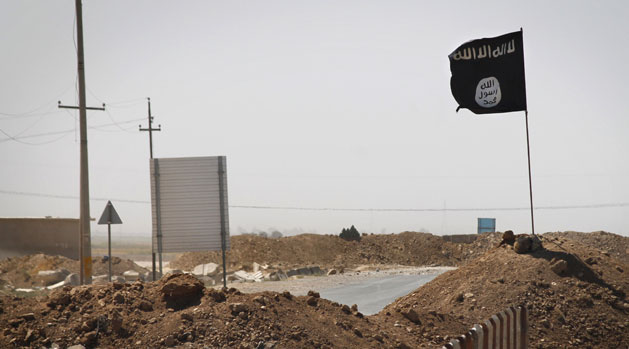Iraq sentences 16 Turkish women to death for joining Isis
Human Rights Watch condemns court for issuing death penalty for non-violent crimes

A free daily email with the biggest news stories of the day – and the best features from TheWeek.com
You are now subscribed
Your newsletter sign-up was successful
A court in Iraq has sentenced 16 Turkish women to death by hanging after they were found guilty of belonging to the Islamic State terror group.
The defendants confessed to marrying Isis fighters or providing the group “with logistical aid or helping them carry out terrorist attacks”, said Judge Abdul-Sattar al-Birqdar. The verdicts are subject to appeal.
The women, said to be aged between 20 and 50, appeared dressed in black at the Central Criminal Court in Baghdad yesterday, the BBC reports. “Four had young children with them,” it adds.
The Week
Escape your echo chamber. Get the facts behind the news, plus analysis from multiple perspectives.

Sign up for The Week's Free Newsletters
From our morning news briefing to a weekly Good News Newsletter, get the best of The Week delivered directly to your inbox.
From our morning news briefing to a weekly Good News Newsletter, get the best of The Week delivered directly to your inbox.
Hundreds of women and children have been detained in Iraq over alleged links to Isis since the Islamist group lost control of its final strongholds in the country last year.
“Many foreign women came - or were brought - from overseas to join the militants,” Reuters reports.
Human Rights Watch has criticised Iraqi courts for handing down death sentences for non-violent crimes, and claims that many women were tricked or coerced into joining the terrorist group.
“In these cases, the women are getting the harshest possible sentences for what appears to be marriage to an Islamic State member or a coerced border crossing,” senior Iraq researcher Belkis Wille said in a statement on the campaign group’s website. “The Iraqi courts need to redirect their priorities.”
A free daily email with the biggest news stories of the day – and the best features from TheWeek.com
Senior Iraqi judges insist tough sentences are playing a vital role in restoring law and order.
-
 Political cartoons for February 21
Political cartoons for February 21Cartoons Saturday’s political cartoons include consequences, secrets, and more
-
 Crisis in Cuba: a ‘golden opportunity’ for Washington?
Crisis in Cuba: a ‘golden opportunity’ for Washington?Talking Point The Trump administration is applying the pressure, and with Latin America swinging to the right, Havana is becoming more ‘politically isolated’
-
 5 thoroughly redacted cartoons about Pam Bondi protecting predators
5 thoroughly redacted cartoons about Pam Bondi protecting predatorsCartoons Artists take on the real victim, types of protection, and more
-
 Epstein files topple law CEO, roil UK government
Epstein files topple law CEO, roil UK governmentSpeed Read Peter Mandelson, Britain’s former ambassador to the US, is caught up in the scandal
-
 Iran and US prepare to meet after skirmishes
Iran and US prepare to meet after skirmishesSpeed Read The incident comes amid heightened tensions in the Middle East
-
 Israel retrieves final hostage’s body from Gaza
Israel retrieves final hostage’s body from GazaSpeed Read The 24-year-old police officer was killed during the initial Hamas attack
-
 China’s Xi targets top general in growing purge
China’s Xi targets top general in growing purgeSpeed Read Zhang Youxia is being investigated over ‘grave violations’ of the law
-
 Panama and Canada are negotiating over a crucial copper mine
Panama and Canada are negotiating over a crucial copper mineIn the Spotlight Panama is set to make a final decision on the mine this summer
-
 Why Greenland’s natural resources are nearly impossible to mine
Why Greenland’s natural resources are nearly impossible to mineThe Explainer The country’s natural landscape makes the task extremely difficult
-
 Iran cuts internet as protests escalate
Iran cuts internet as protests escalateSpeed Reada Government buildings across the country have been set on fire
-
 US nabs ‘shadow’ tanker claimed by Russia
US nabs ‘shadow’ tanker claimed by RussiaSpeed Read The ship was one of two vessels seized by the US military